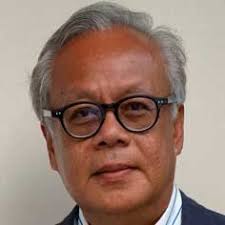Will oil pipeline scandal affect Sabah?

Joe Samad, Free Malaysia Today
On Nov 12, 2017, I wrote an article in a local daily entitled “Issues concerning the Trans-Sabah Gas Pipeline project” and another on Nov 17, 2O17 in an online portal entitled “TSGP Sabah, another project from China’s deep pockets”.
On June 5, a newspaper reported Finance Minister Lim Guan Eng’s revelations that two multi-billion projects, the Multi-Product Pipeline (MPP) and Trans-Sabah Gas Pipeline (TSGP) were done with lopsided terms which led to about 88% of the projects’ total value of RM9.4 billion being paid out, even though only 13% of work on the three-year projects had been executed.
Both projects were awarded to the China Petroleum Pipeline Bureau (CPPB) on Nov 1, 2016, and work started in April 2017. The project borrowings were guaranteed by the federal government.
Lim said the finance ministry had discovered that the payment schedule for the above contracts was based almost entirely on timeline milestones, not on progressive work completion. Worse, based on the agreements, 85% of the project value would be paid by March 1, 2018. He said RM4.71 billion and RM3.54 billion for the MPP and TSGP projects respectively had been drawn down and paid to CPPB. The total sum paid of RM8.25 billion constitutes a staggering 87.7% of the total project value. This is despite an average completion rate of only 13%, with another two years to go in the contracts.
Lim also revealed that the above did not yet include two other consultancy agreements signed for the same projects worth approximately RM312 million and RM213 million, and a maintenance agreement worth RM476 million awarded to companies from China, totalling an additional RM1 billion.
Apparently, MPP and TSGP contracts were negotiated by the Prime Minister’s Department, without involving Treasury officials. The Attorney-General’s Chambers confirmed that these contracts were signed despite numerous unanswered questions and red flags raised.
In a Nov 8, 2017 press statement, former minister in the Prime Minister’s Department Rahman Dahlan said: “I refer to a message that has gone viral via WhatsApp and other social media since yesterday afternoon, purportedly to be a warning to Sabahans, Sabah MPs and Aduns with regard to the Trans-Sabah Gas Pipeline (TSGP) project.”
Rahman said land matters were strictly under the state’s jurisdiction and that without engagement and cooperation between Sabah and the federal government, the project could not proceed, “which debunks the claim that the state government was not consulted and involved in the project”.
If the state government was “consulted” as claimed by Rahman, what is the deal? Who are the real beneficiaries? Since land is under state jurisdiction, the director of the Department of Land and Surveys should be able to answer on how much of the land was alienated to TSGP and the land valuation done.
On Nov 9, 2017, Sabah DAP secretary Chan Foong Hin questioned the absence of a feasibility study for the multi-billion ringgit TSGP. Was there any environmental impact assessment (EIA) done? What is the route taken for TSGP? Will it affect the local communities and wildlife? Will it also pose a danger in the event of gas leaks or explosions? Sabahans have the right to know.
There were more clues on TSGP. On Dec 28, 2017, Maximus Ongkili, the former energy, green technology and water minister, said the 662km TSGP project, which was under the purview of the finance ministry, was at the advanced stage and contracts would be awarded within the next six months. Despite a minor hiccough, the RM4.53 billion TSGP project was on track and in the final phase of development, he said.
According to Ongkili, the proposed pipeline was supposed to cut across the state, from Kimanis SOGT on the west coast to Sandakan in the east coast, passing through forests and oil palm plantations. Ongkili said Suria Strategic Energy Resources Sdn Bhd, a company wholly-owned by the finance ministry, had finalised the packages and was in the midst of conducting surveying works as well as acquiring land. Sabahans would like to know how much of the land has been acquired for the project.
If the pipeline is going to cut across pristine mountains and conservation areas like Danum Valley, Maliau Basin and Imbak Canyon, Sabahans should be given access to the feasibility studies and any studies on the environmental impact, if any. The people and communities impacted by the pipeline route should have their say. If they have not done the EIA or engaged with the communities, the previous state government is at fault.
In a related development, on Feb 12, 2018, Ranhill Holdings Bhd announced that a consortium of companies, in which its subsidiary is a partner, had received a conditional letter of offer from the Energy Commission for the development of a 300MW combined cycle gas turbine plant in Sandakan.
Ranhill said its wholly-owned unit SM Hydro Energy Sdn Bhd was involved, but did not disclose who the other partners are in the consortium. Rainhill should disclose who the other consortium partners are and whether Sabah partners are involved. In the case of Kimanis Power Sdn Bhd, a joint venture between Petronas and Yayasan Sabah, it has paid good dividends annually and helped to further the education obligations of the state to the people of Sabah.
There are so many questions which have to be answered on the TSGP project, now that Lim has opened the Pandora’s box. Sabahans are eager to know.

